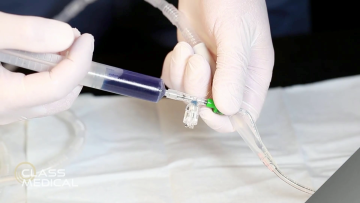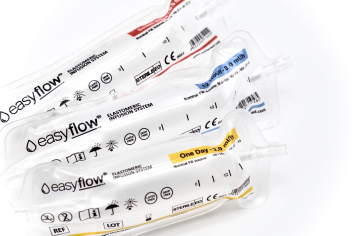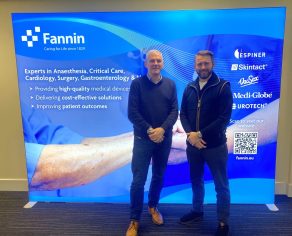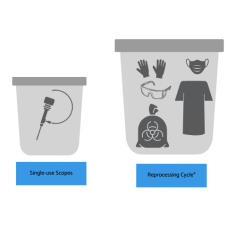DCC Vital Modern Slavery Statement 2020
Modern Slavery Act 2015
Slavery and Human Trafficking Statement for Year Ended 31 March 2020
1. Our Policy
DCC Vital is opposed to slavery and human trafficking in any part of our activity or our supply chains. We are therefore committed to ensuring that we have adequate policies and procedures in place to identify and prevent these practices.
We met the turnover threshold applicable under section 54 of the Modern Slavery Act 2015 in the period covered by this statement.
2. Our Business
We distribute a broad range of own- and third party-branded medical devices, pharmaceuticals and medical supplies to hospitals, pharmacies, GPs, other healthcare providers and related industries in the UK and Ireland. Seasonal work is not a feature of the industry in which we operate. More information on our business is available at www.dccvital.com.
We are part of the DCC Group. DCC is a leading international sales, marketing and support services group with a clear focus on performance and growth. Its headquarters are in Dublin, Ireland. It is listed on the London Stock Exchange and is a constituent of the FTSE 100 Index.
DCC currently has operations in 20 countries and employs over 13,000 people. Additional information on the Group is available at www.dccvital.com.
3. Our Structure
Our business is organised into the following trading companies: – Fannin Limited – Fannin (UK) Limited – Fannin (NI) Limited – Medisource Ireland Limited – SP Services Limited – Squadron Medical Limited – The TPS Healthcare Group Limited – Williams Medical Limited – Vacsax Limited
During the year, DCC Vital disposed of the UK pharma business and associated manufacturing facility in Ireland.
4. Our Supply Chains
Our primary supply chain partners are authorised medical device and pharmaceutical manufacturers and distributors. The large majority of these are located in countries where the risk of modern slavery and human trafficking is low. Where we deal with suppliers in countries where this risk is higher, we have put more robust controls and due diligence in place.
The following table contains a summary of the activities that we consider present the highest risk of slavery and human trafficking in the industries in which we operate, with a summary of the steps we have in place to avoid these affecting our activities or our supply chains.
Industry Risk Steps Taken include Representing manufacturers or engaging contract manufacturing in high risk countries
− Quality and ethical due diligence checks/reports − Risk based approach to desktop and site auditing including 3rd party auditors or compliance schemes − Robust agreements including quality and supply chain integrity clauses − Signed statements of compliance and acceptance to our Code of Practice − Open regular two-way communications on compliance expectations and performance − Provision of training to our partners where required − Agreeing mitigating controls and corrective actions where required − Terminating the relationship if mitigation not possible Appointing distributors outside the EU
5. Our Policies on Slavery and Human Trafficking
The DCC Code of Conduct sets out our Group’s commitment to acting ethically and with integrity towards our employees and in all our business relationships. Specifically, section 2 of the Code sets out our commitment to fair employment practices and section 14 of the Code sets out our commitment to preventing, as far as practicable, slavery and human trafficking in our supply chains.
In addition, the DCC Group Supply Chain Integrity Policy sets out the approach taken by every business in the DCC Group to ensuring that all the products we sell meet applicable legal and ethical standards, including human rights and minimum labour standards. Among other things, this Policy requires us to consider the risk of slavery or human trafficking arising in the countries where our suppliers are located.
Both of these documents are available at http://www.dcc.ie/responsibility/our-policies. Our policy on slavery and human trafficking is set out in section 1 of this statement. At DCC Vital, we have established our Supply Chain Integrity Procedure and Code of Practice to reflect the requirements of these Group policies. These documents outline the detailed requirements we follow at DCC Vital and which have been integrated into local company procedures. In addition, relevant DCC Vital companies participate in the NHS Labour Standards Assurance System including 3rd party audit of our Supply Chain Integrity Procedures.
6. Procedures on Slavery and Human Trafficking
As part of our compliance with the policies and procedures referred to above, we take the following steps:
• Assess potential risk areas in our supply chains, including where partners or potential partners are located in countries where slavery or human trafficking are a particular risk. The risk assessment considers the industry or geographies in which they operate. Geographic risk, for this purpose, is informed by relevant independent indices such as the Corruption Perceptions Index or Global Slavery Index; • Carry out enhanced due diligence on certain partners following this risk assessment. As a DCC Group business, we work mainly with Kroll, a leading supplier of integrity due diligence services, in this area. Where red flags are identified in this due diligence, senior management are involved; • Mitigate the risk of slavery and human trafficking occurring in our supply chains, including by reviewing, where necessary, the controls that our suppliers have in place, asking partners to confirm that they meet certain standards and carrying out other suitable checks including audits.; • Monitor potential risk areas in our supply chains on a periodic basis.
An example of slavery and human trafficking risks identified in our supply chain and the steps we have taken in relation to them are set out below:
• DCC Vital purchases some medical devices from countries in Asia where slavery and human trafficking may be a problem. In addition to increasing the level of due diligence completed on suppliers in these countries before they are appointed, DCC Vital has also taken steps to extend the scope of factory audits of these suppliers, both new and existing, to include employment and safety standards. Where areas for improvement are identified, specific corrective and preventive actions are agreed with the supplier and implemented.
7. Procedures on Slavery
Responsibility for ensuring that our procedures are adequate and are adhered to in all areas of our activities rests with the senior management team of DCC Vital. Regular updates are provided to the DCC Vital Compliance Committee for review and feedback. Our policies and procedures are audited periodically by third parties to assure compliance and to identify areas for improvement. These audits address supply chain integrity risks including the abuse of human rights and employment rights.
We report on compliance with the DCC Group Code of Conduct and Supply Chain Integrity Policy every six months.
8. Training & Awareness
To ensure a suitable understanding of the risks of modern slavery and human trafficking in our business and our supply chains, directors and relevant employees in our business have received training in the procedures relevant to their responsibilities. Employees working with supply chain partners in high risk countries have completed additional bespoke training. Supply Chain integrity training forms a part of ongoing training at DCC Vital with further training in updated policies, procedures and guidance planned in 2020 based on recent audit findings.
9. Nature of this Statement
This statement is made pursuant to section 54(1) of the Modern Slavery Act 2015 and constitutes our slavery and human trafficking statement for the financial year ending 31 March 2020.
This statement has been approved by the DCC Vital Leadership Team.
Harry Keenan Group Managing Director DCC Vital June 2020



